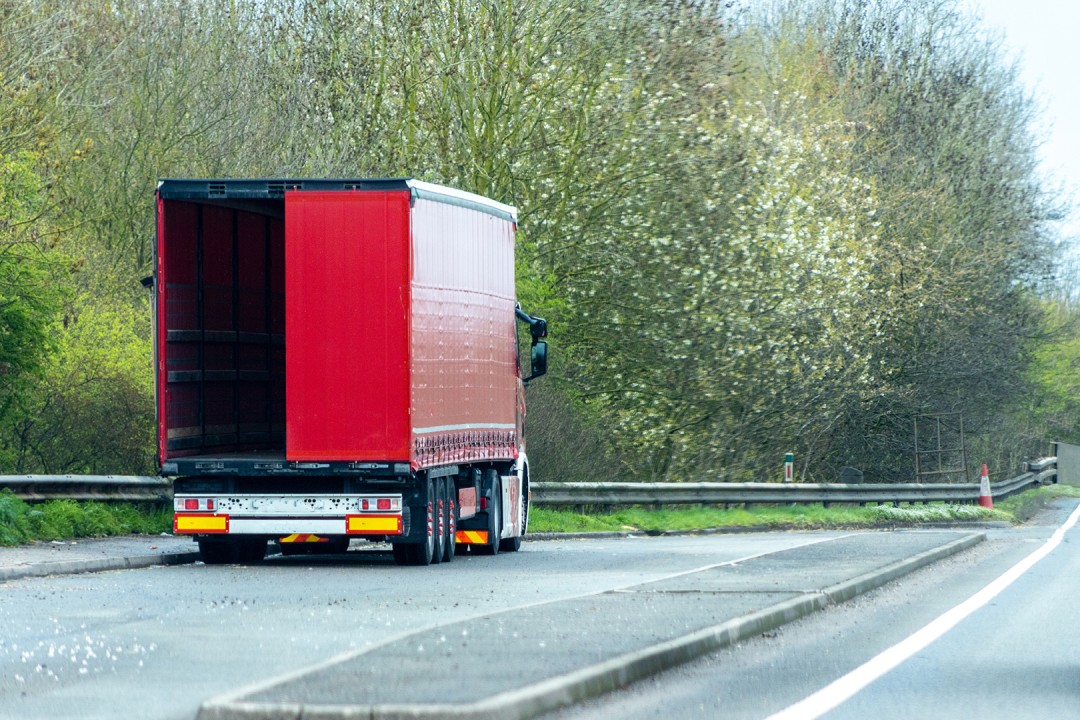
Susie Jones
Are drivers choosing lay-bys over service stations
Created: 19/08/2024
•
Updated: 19/08/2024
In 2022, the UK saw over 5,000 reports of freight crime - amounting to a loss of roughly £66 million. Increased cargo crime poses a critical threat to supply chains, businesses, and consumers - causing significant concern for those in the haulage industry.
A report published by Cambridgeshire Police saw 46% of all cargo thefts occur on streets and lay-bys, and 27% happen at service stations. Despite this, social listening shows that many drivers continue to park in lay-bys for various reasons.
The issues with lay-by parking
For drivers, parking overnight in a lay-by is often the most straightforward and economical option. However, it presents several downsides that can negatively impact driver mental health and safety.
• Facilities - Drivers need more facilities, such as toilets, showers, and food. A lack of clean facilities can increase discomfort and negatively impact sleep, concentration, and mental health.
• Driver safety - Lay-by parking presents an added risk to driver safety. A study by the AA found that two-thirds of fatal accidents involving stationary vehicles on a dual carriageway occurred in lay-bys - over half of the vehicles hit were heavy goods vehicles.
• Cargo theft - The industry experienced a 380% rise in cargo theft from June-July in 2023, highlighting the need for safe and secure parking. With opportunistic thieves targeting lay-bys, drivers risk losing their cargo, and fleets risk losing millions of pounds.
Why drivers are parking in lay-bys
Despite the risks, social listening conducted via Facebook suggested that 70% of drivers were less inclined to choose a truck park over a lay-by for several reasons:
Security
Feedback from social media suggested that 43% of truck drivers chose not to park at a truck stop or service station because of the lack of security measures.
"I only park in lay-bys or industrial estates. When I have parked in services/truck stops, I have had my curtains cut," states truck driver Luke.
The safety and security of truck stops across the UK has been a hot topic of discussion within the haulage industry - with drivers requesting more support from the Government to provide additional security installations. From previous feedback, drivers wanted to see the HGV levy invested in more secure, sanitary, and affordable parking.
From social media, 59% of truck drivers stated the UK lacked sufficient safe and secure truck stops compared to Europe. An opinion supported by feedback from SNAP's Truck Park Tour, where 31% of European drivers stated they benefitted the most from access to exclusive, secure SNAP locations. Security organisation TAPA is widely recognised in Europe - with many locations holding Level 1, 2, or 3 certifications.
In contrast, the UK has just two locations carrying a TAPA certification - with SNAP PSR Level 3 trained Authorised Auditors accrediting the sites. Formula Services and The Red Lion both carry a Level 3 certification - with one offence reported at The Red Lion and none at Formula Services, despite its location in a high-crime area.
Markus Prinz, Senior Manager of Standards, Training, and Certification at TAPA explains, “We fully support all activities in ensuring efficient and safe parking infrastructure for trucks and improving safety for truck drivers, vehicles, and cargo. By providing an open eco-system for the technical and economic optimisation of secure truck parking, we believe that the transition to secure truck parking can be boosted.”
Company reluctance
30% of drivers stated their fleet companies were unwilling to pay for truck stops or service stations. One driver explained:
"Fewer companies, unfortunately, are paying for overnight parking, facilities are staying open by the skin of their teeth, cutting staff to meet bills, and less parking coming in."
Truck stops at maximum capacity
"You can tell which stops have security, as they're full by 6 pm."
70% of drivers voiced their frustrations regarding secure truck stops being at maximum capacity - leaving them no choice but to park in a lay-by. Feedback from the Truck Park Tour provided a similar sentiment - many voiced their concerns over UK locations being full before arrival.
Data from TfL’s 2022 lorry parking survey states that despite a 12% increase in on-site capacity from 2017-2022, it is not enough to support the 21% vehicle increase in the same period.

Reducing overnight parking in lay-bys
Government funding
18% of drivers wanted to see more funding from the Government to support security installations. In September 2023, the Department for Transport awarded £8 million to 39 roadside facilities across England to improve facilities and security. SNAP's Access & Security team is beginning to support the companies who secured funding by actioning their improvements. Further funding up to £100 million is available until 2025 under the Government's match-funding scheme.
Security installations
To provide a safe and secure area for truck drivers, truck stops can invest in robust security installations - products such as CCTV, ANPR, intercom, barriers, and kiosks reinforce site safety and deter criminal activity. SNAP Access & Security blends tailored security products and market expertise to protect the people, vehicles, and contents at truck stops.
Can truck drivers sleep on the side of the road in the UK?
Since the 1st of November 2017, the DVSA implemented new rules and regulations regarding drivers resting in locations such as residential areas and lay-bys. Drivers could be fined up to £300 if they spend their break in a lay-by or at the side of the road.
How do truck drivers stay awake while driving?
Truck drivers must follow tachograph break rules for their safety and everyone else on the road. The purpose of a tachograph is to prevent driver fatigue and ensure drivers and employers adhere to the rules.
Despite this, preventing boredom and fatigue on the road is challenging for many drivers and can affect their well-being. Most drivers prefer listening to music and podcasts while on the road and thrive off social interaction with other drivers at truck stops and service stations.
Are truck drivers allowed to have passengers in the UK?
The average truck driver spends roughly 12 hours a day behind the wheel. To combat loneliness and boredom, drivers can carry passengers if they follow specific regulations outlined by the FMSCA. Drivers must get written authorisation from their company by submitting a passenger application - this application must state the duration of the trip and the dates.
The common requirements are as follows: • Passengers must not be pregnant
• They must not suffer from severe or chronic health conditions
• They must be ten years or older
• Health insurance is required.


